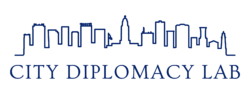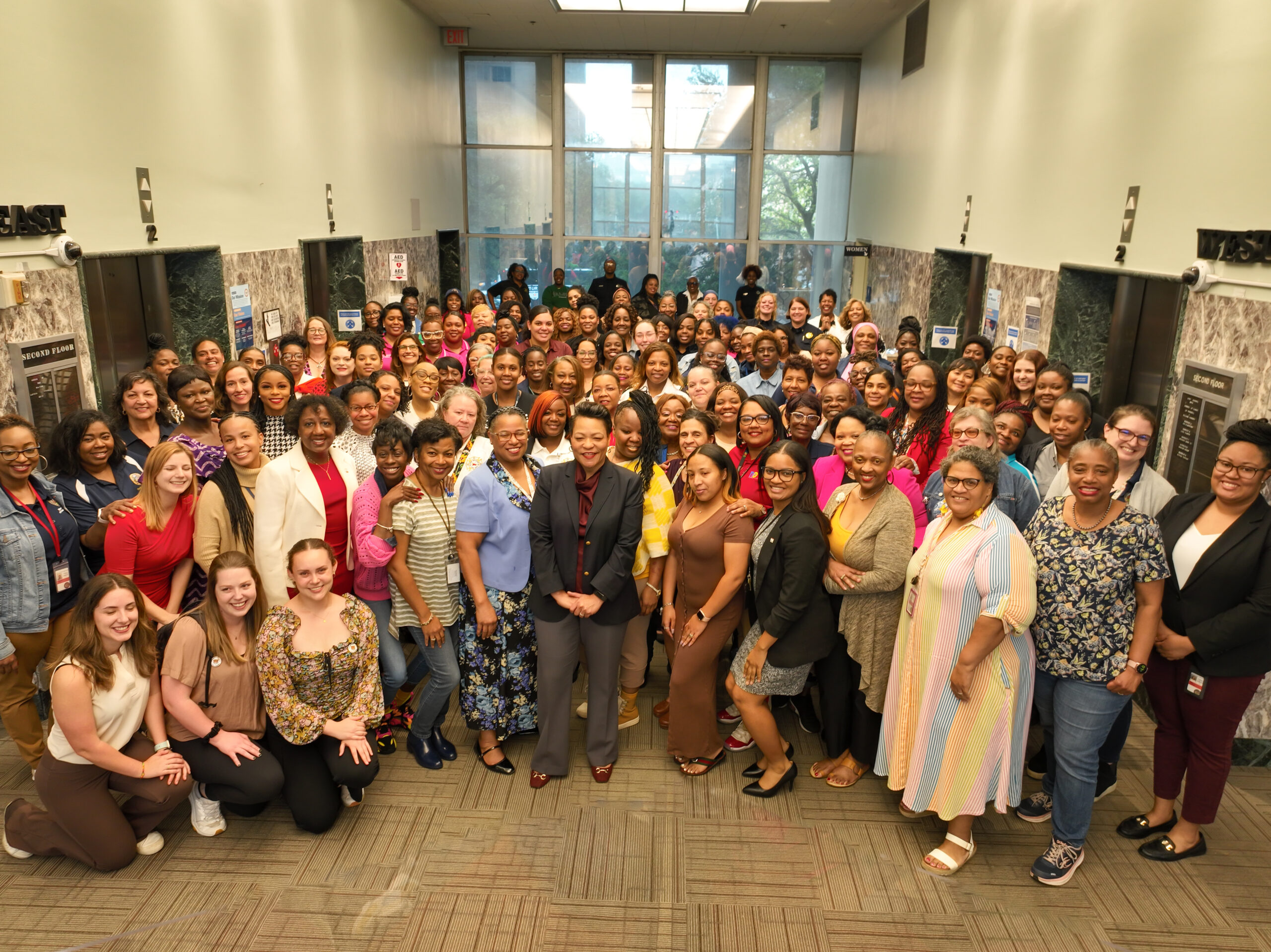What path led you to become a city diplomat?
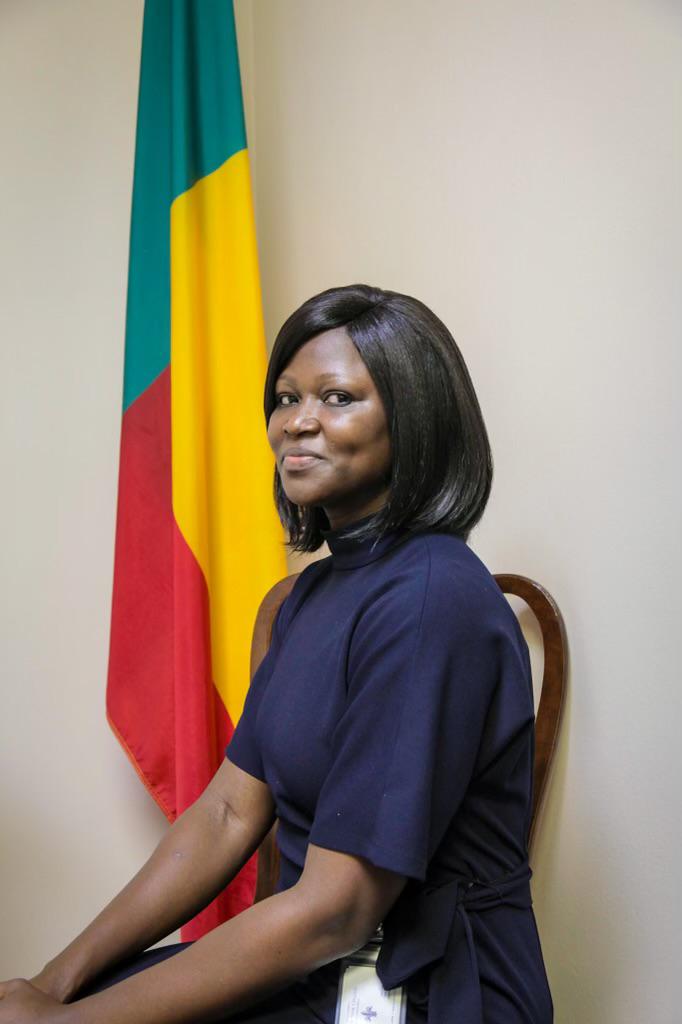
My experience as an international student from Toucountouna, Benin, to New Orleans, Louisiana, in the United States of America is what led me to become a City Diplomat. In 2007, I moved to New Orleans to pursue my education, starting with learning English as a Second Language at the Intensive English Language Program at the University of New Orleans (UNO). During that time, I met Mrs. LaToya Cantrell, then President of the Broadmoor Improvement Association, who was meeting with leaders from various African countries.
I assisted Mrs. Cantrell with the visitors and loved interacting with them. In December 2012, I obtained my Bachelor of Arts in International Studies from UNO and was hired as the Executive Assistant of Councilmember LaToya Cantrell after she had been elected to District “B” in November 2012. Councilmember Cantrell has long believed in meeting people where they are and wanted to serve everyone in her district, including non-English speakers. In addition to English, I also speak French and Spanish, which was and continues to serve as a benefit when serving the city’s diverse population. While employed in this role, I continued to work with international visitors who met with Councilmember Cantrell from the New Orleans Citizen Diplomacy Council, the current Global New Orleans, through the United States Department of States International Visitor Leadership Program. Whenever I met with any of the groups and spoke to them in their own language, the visitors’ faces would light up as they exclaimed, “Wow, you speak our language!” They were always excited to meet someone who spoke their language. The reactions were priceless, and I loved it. Councilmember Cantrell also loved these meetings, and my passion for serving our people both locally and internationally grew from there. Even though I studied International Studies, I did not think I would ever find myself in this position. I knew I wanted to be a diplomat but did not foresee it happening locally.
What was the most complex challenge you faced as head of New Orleans’ international relations unit, and how did you deal with it?
The challenges that I faced as the Director of International Relations of the City of New Orleans stemmed from being a young Black woman from another country. It is already challenging enough to be a Black woman because you are never considered “enough” or equal to others, but also add to that being young and from another country really heightens the challenge. But I wouldn’t change any of that about me because that is what makes Rosine PEMA SANGA a proud daughter of my late parents. One example of the challenges as a young black woman from another country took place two weeks after I started my job. The Mayor was scheduled to give remarks at an event, and I was to go with her. That morning, I was informed she would no longer attend, and I would need to represent her and speak on her behalf. When I arrived at the event, I overheard people talking about the Mayor and Councilmember canceling their attendance, and both were sending representatives. The young Black woman in me wondered whether I should introduce myself. I walked away at first and came back to introduce myself as if I just arrived. I walked away again after they handed me the program. I felt their disappointment because I was not the Mayor. Moreover, I was a young Black woman. They didn’t know what I could do. When the event started, it was my turn to address the public on behalf of the Mayor.
Facing intimidation, I remembered who I was representing and what she would have done if she had been there. I did not have to deal with it in any way other than getting my job done. I gave my remarks in English and transitioned into the audience’s native language. Everyone was shocked. No one expected me to be able to speak with confidence and to address them in their native tongue. Now, we have a better working relationship, and they are always looking forward to having me at their events. I treasured that moment because of the reaction before and after my remarks. I reflect on it often, and it helps me grow.
There is something I learned from my pastor in 2007 when I was still learning English – while preaching, he would say never allow anyone to take your joy away. Though my English was not great, I managed to understand that, and I made that phrase my own. I wake up every morning with a purpose: to accomplish the task that the Mayor entrusted me with and serve the community who depend on me. The communities I serve are proud to have me, and I am proud of what I have accomplished with all our partners.
What is the most treasured moment in your city diplomacy career?
Every moment that I am serving the Office of International Relations for the City of New Orleans is a treasured moment for me. I love my job; it truly is a passion, and I believe I have the best job. I am grateful to Mayor LaToya Cantrell for awarding me the opportunity to work with people from all over the world. Through my work, I have welcomed people from other countries, from our Sister Cities, as well as traveled to different countries as part of my official duties. I have represented the Mayor numerous times in various countries at various events, including the International Association of Francophone Mayors’ Annual Summit, which I am always looking forward to attending every year. I also get the pleasure of conversing and sharing my work with international dignitaries and guests brought to me by Global New Orleans through the United States Department of States International Visitor Leadership Program. We invited President Emmanuel Macron of France in March 2020, shortly before the COVID-19 pandemic, and we were graced with his visit to New Orleans in December 2022. I was proud to be part of the planning committee, even standing by his plane late at night waiting for his departure. All these moments are treasured.
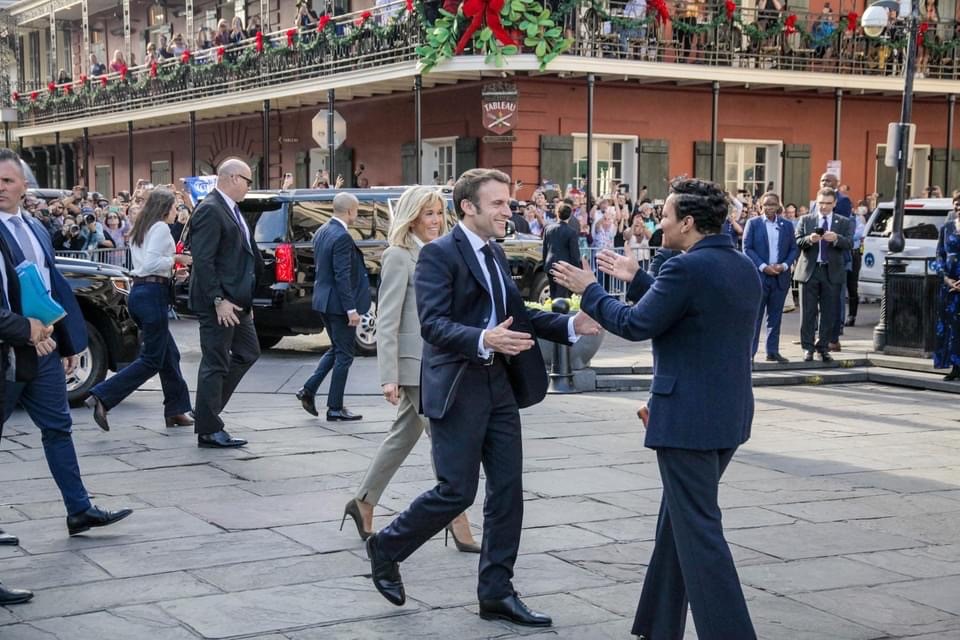
I do want to mention one moment: this occurred this past March 8, 2024, on International Women’s Rights Day. I grew up watching my mother lead women’s associations and organize International Women’s Rights Day events. After I moved to New Orleans, every year at the end of January, I would talk to my mother as she started planning for March 8. In 2015, I lost my mother. Since then, from the end of January until March 8, I have always remembered my mother because she would be planning and talking about International Women’s Rights Day. When I began working here, I always wanted to initiate International Women’s Rights Day, but I lacked the (wo)manpower.
Finally, this year, with the help of certain colleagues, we were able to gather over 150 women for International Women’s Rights Day. It was raining, but women came from different departments looking forward to taking a picture to commemorate that day. It allowed me to understand that many women wanted that event, and we look forward to a bigger and better International Women’s Rights Day in 2025. Even with the weather forecast and short notice, many people showed up and were interested in seeing more. I will never forget that day.
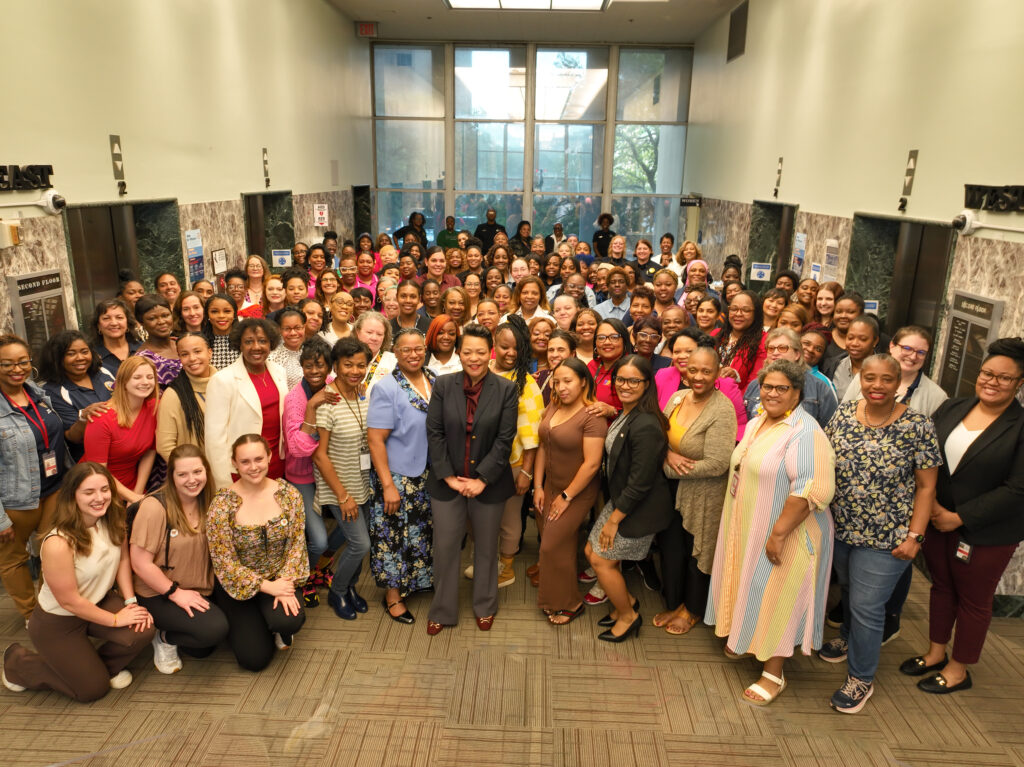
When my mother visited New Orleans in 2008, one of the first English words she learned was “crazy,” so she could tell people her Rosine was crazy. That day, I could hear my mom telling the crowd that Rosine was crazy, and it always made me smile because I knew it was her way of telling people Rosine was my daughter, and I loved her.
In your opinion, how will the work of city diplomats evolve in the coming years?
I am unsure how the work of city diplomats will evolve in the coming years because this depends on future administrations’ willingness to commit to the program. The last time the City of New Orleans had an office of International Relations was at least ten years before Mayor Cantrell. If International Affairs were not a priority for Mayor LaToya Cantrell’s administration, we would not be having this conversation. However, for the past five years that I have been in this role, I believe cities like ours, meaning world-class and internationally recognized cities, deserve a fully functional Office of International Affairs/Relations. The city has almost 50 Consular Corps members, though many of them are honorary. I believe it is essential for a city diplomat to always be a part of any administration because our work aligns with the country’s interests in terms of the country’s foreign policy, and it allows us to maintain our relationships and cultivate new ones across the globe.
What advice would you offer those wanting to pursue a career as a city diplomat?
City Diplomat positions are limited. When Mayor Cantrell’s administration ends, the next administration might not be interested in having this office. The advice I would offer those wanting to pursue a career as a city diplomat would be to prepare to be a “diplomat,” not just a city diplomat. Always be yourself and relate to other people. Accept people and their culture as they are. Learn from other people and their culture, and do not judge those who do not speak the same language as us because they already know their own language and probably speak many others. Overall, always treat people the same way you want to be treated, with respect and dignity.
